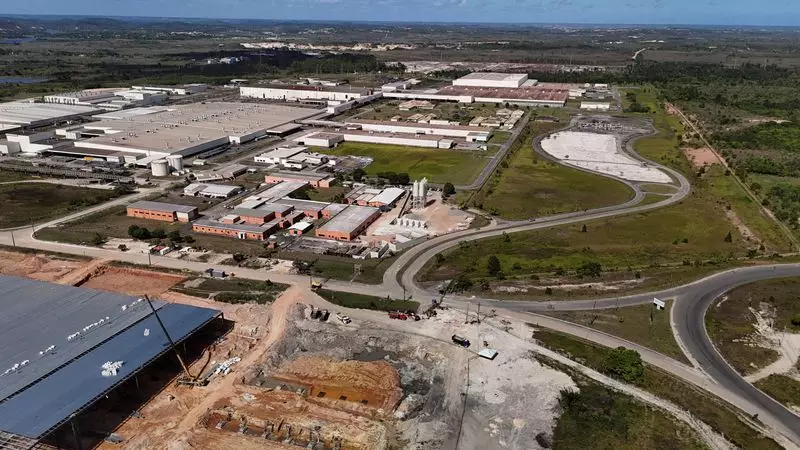Brazil has recently made headlines due to its decision to halt the issuance of temporary work visas for BYD, a prominent Chinese electric vehicle manufacturer. This action arises from serious allegations of human trafficking and labor exploitation involving workers at a BYD construction site in Bahia, Brazil. The Ministry of Foreign Affairs announced this suspension after labor authorities uncovered evidence that suggested 163 Chinese workers were brought to the country under “slavery-like” conditions. This situation underscores not only the complexities of international labor practices but also the broader socio-economic implications of foreign investments in Brazil.
The accusations against BYD are severe. Labor authorities discovered that the Chinese workers were allegedly recruited irregularly and faced conditions comparable to slavery while working on the factory site. The contractor involved, Jinjiang Group, has vehemently denied these claims, asserting that the portrayal of their labor practices is exaggerated and stemming from misunderstandings related to translation. These contrasting narratives present an intricate challenge, as they tap into deeper issues of labor rights and the sometimes murky waters of foreign labor exploitation.
The significance of these events extends beyond the confines of a corporate controversy. They reflect a worrying trend where foreign labor is subjected to precarious conditions that violate basic workers’ rights. The fact that these workers entered Brazil on temporary work visas raises questions regarding the adequacy of the recruitment processes and the responsibilities of all parties involved, including the Brazilian government.
Impact of BYD’s Investment in Brazil
Despite the troubling allegations, BYD has invested heavily in Brazil, committing approximately $620 million to establish the Bahia factory complex. This ambitious project symbolizes China’s expanding influence in Latin America and aligns with Brazil’s aspirations to position itself as a key player in the electric vehicle market. With plans to commence production in early 2024 and an initial production target of 150,000 vehicles annually, the factory plays a pivotal role in both BYD’s global strategy and Brazil’s economic development.
However, the labor scandal casts a shadow over these investments. Should investigations confirm the allegations, it could lead to revocation of residence permits for the Chinese workers involved, complicating the relationship between Brazil and BYD. Furthermore, the fallout could deter future foreign investments and tarnish Brazil’s image as a conducive environment for international business.
Brazil’s Ministry of Justice is in a critical position, tasked with ensuring that these allegations are thoroughly investigated. The ministry’s decision to request the suspension of temporary visa issuance, occurring just before the public disclosures of the labor conditions, indicates a proactive stance in addressing potential human rights violations. This decision highlights the importance of government oversight in labor practices, particularly in industries reliant on foreign labor.
Moreover, the accident speaks volumes about the relationships between countries and companies. Brazil’s careful navigation of its response to the BYD situation will be a litmus test for its broader human rights policies and regulatory frameworks. The effectiveness of enforcement mechanisms regarding labor conditions could either reinforce or undermine Brazil’s reputation in the global market.
This incident resonates beyond bilateral relations. Brazil’s interaction with BYD underlines a prevailing theme in many developing economies: the struggle to balance economic growth against the rights and welfare of workers, especially those who are foreign. As international companies increasingly seek opportunities in emerging markets, it becomes imperative that labor standards are upheld, and that workers are not exploited in the name of profit.
The situation at BYD’s facility in Bahia also reveals the interconnectedness of global supply chains. As countries like Brazil become vital nodes in the electric vehicle manufacturing landscape, the scrutiny on labor practices will intensify, demanding transparency and accountability from all stakeholders involved.
The suspension of temporary work visas for BYD highlights significant challenges in international labor practices and the protection of workers’ rights. As Brazil grapples with these serious allegations, it serves as a poignant reminder for both governments and corporations: economic growth should never come at the cost of human dignity.
To foster a sustainable future, all parties must engage in responsible corporate practices that ensure compliance with ethical labor standards. Addressing these issues not only safeguards workers but also fortifies the long-term viability of foreign investments in Brazil and other emerging markets.

